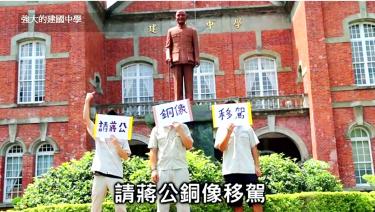The nation is on a dangerous path toward a return to authoritarian rule given the precipitous erosion of freedom and personal rights under the Chinese Nationalist Party (KMT) government led by President Ma Ying-jeou (馬英九), academics and civil liberty groups said on Tuesday.
Taiwan Association for Human Rights (TAHR) chairman Chiu Hsien-chih (邱顯智) said there are more crackdowns and violence by the state apparatus against civilians these days, a clear indication that democracy and human rights protections are sliding backward.












